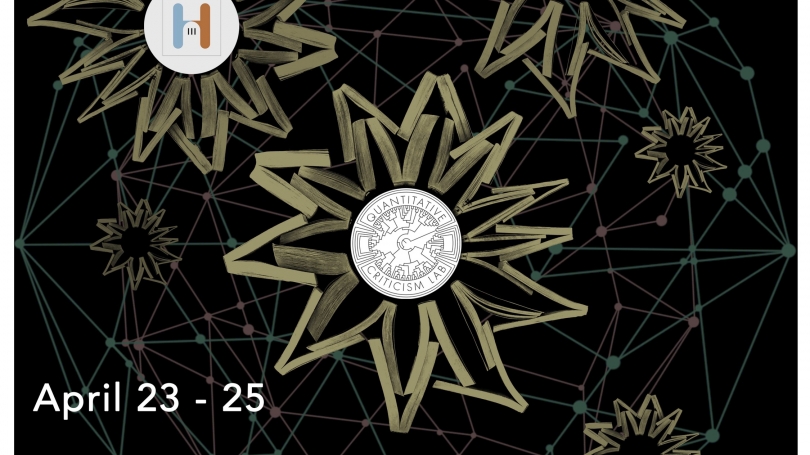
- About
- Humanities Networks
- Faculty
- Students
- Postdocs
- News & Events
Back to Top Nav
Back to Top Nav
Back to Top Nav
Back to Top Nav
The conference, organized by the Quantitativbe Criticism Lab, is supported by the Leslie Center for the Humanities, the Classics Department, Compartative Literature Program, Computer Science Department, Digital Humanities, English Department, and the Neukom Institute. Additional support is provided by the Office of the Frank J. Guarini Associate Dean for International Studies and Interdisciplinary Programs, the Digital Humanities and Social Engagement Cluster, the Department of Computer Science, and the Department of English.
The following events are open to the public:
Keynote Lecture by Matthew Jockers (Washington State University) - Wednesday, April 24th at 5pm, LSC 100
“Direct Address in Beowulf; or How I Became a Literary Quant”
The lecture charts developments in quantitative literary studies through reflection on my early work in the field and some sample applications of current computational methods. I use the case-study of the Old English poem Beowulf not only to show some of the important ways in which research has evolved, but also to highlight the potential for premodern texts to inform the advancement of the field at large. Traditional philology and stylistics has always had a quantitative aspect, as illustrated by my forays into the metrics of Beowulf nearly 25 years ago. The rise of computation, however, has enabled more diverse and comprehensive studies of style, which I illustrate with analyses of the poem’s authorship and the implications of the two scribal hands in the single surviving manuscript. The presentation will describe the use of word frequency distributions and high dimensional clustering for these analyses, in the course of which I will also show examples of pertinent code and graphical visualizations. My twofold aim is to introduce these methods to a wider audience of humanists unacquainted with them, and to reflect on the particular amenability of premodern fields to this sort of work.
Keynote Panel with Patrick Burns (University of Texas at Austin), Tanya Clement (University of Texas at Austin), Grace Fong (McGill University), and Carrie Schroeder (University of the Pacific) - Thursday, April 25th at 12:15pm, Occom Commons (lunch provided)
“Computational Tools and the Cross-Cultural Study of Literature”
This keynote panel will address the possibilities for cross-cultural and diachronic literary research opened up by the creation of new computational tools and methods. The panel will take the form of brief, informal presentations outlining the panelists’ views of the prospects for a digital “World Literature,” followed by an open Q&A. All of the panelists are leaders of major digital humanities projects that range across historical periods, diverse languages and cultures, and new methodologies.
Keynote Lecture by Sukanta Chaudhuri (Jadavpur University) - Thursday, April 25th at 4:30pm, Wilder 111
“The Human and the Digital: Extending the Dialogue”
Digital technology promises to remove many barriers and inequalities in the search for knowledge, but it creates others covered by the shorthand term “digital divide.” Some of the issues are economic and socio-political; others epistemological and methodological, or related to the physical form of the knowledge material. Such challenges are routinely faced by workers outside the Western cultural and technological metropolis, or even within its “suburbs” given over to non-Latin fonts and underprojected cultures. This paper will look at a range of such challenges, with actual or potential solutions. They extend from the mechanics of digitization (fonts) to epistemological issues (grammar, semantics, discourse structure) to economic and cultural factors (the material medium, conditions of preservation and access). Illustrations will be drawn, inter alia, from the author’s experience at the School of Cultural Texts and Records, Jadavpur University, India. The aim will be to suggest effective means of extending the linguistic, cultural and material reach of digital humanities in a diverse world.